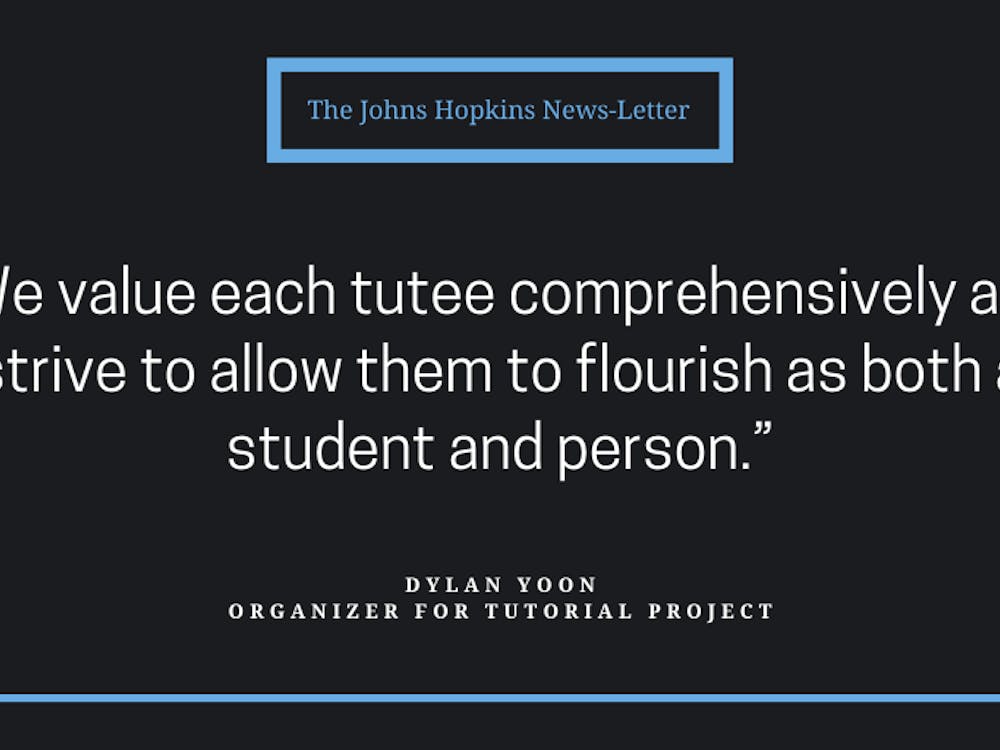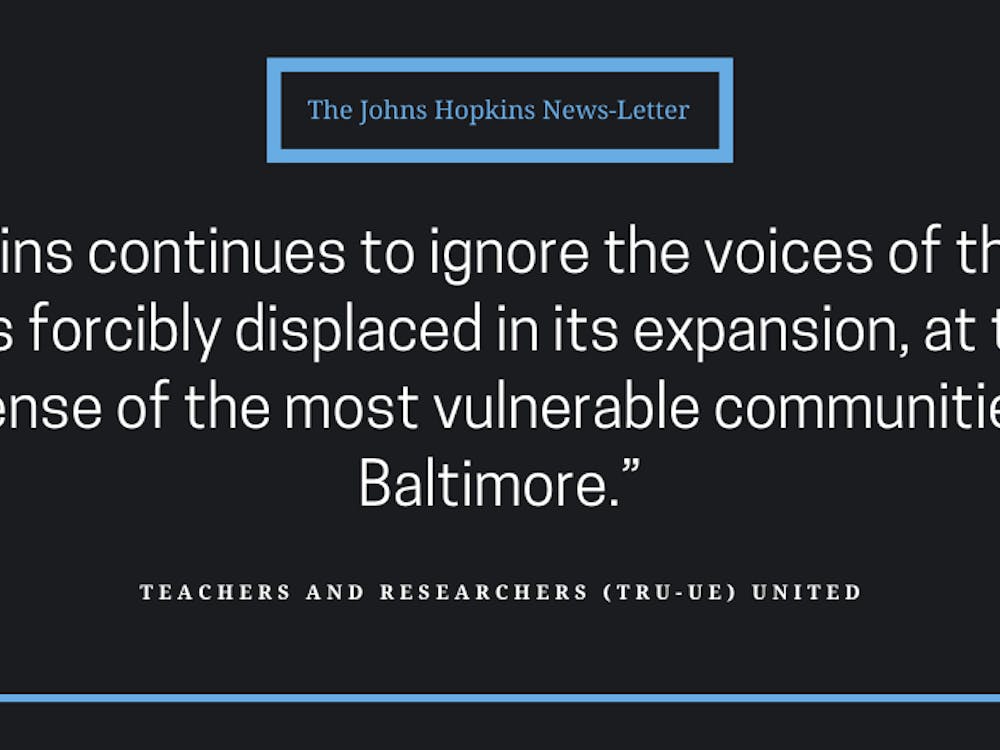The Panhellenic Association at Hopkins hosted a panel featuring supporters and defenders of sexual assault survivors on Monday. Students attended to learn about the support resources available at Hopkins for survivors of sexual assault and to understand how to best aid them.
Sophomore Sophia Strickland, who served as moderator, explained the purpose of the event.
“I thought, we have so many experts on campus, so why not bring all of them together to have them talk about stuff they don’t usually talk about and give people a chance to ask questions that they couldn’t normally ask?” Strickland said.
She began the event with a disclaimer that some of the panelists were mandated reporters, individuals who are legally obligated to report any suspicions.
Each panelist stressed that first and foremost, they would always believe survivors of sexual assault, citing the extremely low statistical likelihood that survivors are making false accusations. They noted, however, that a relatively large amount of the public is more skeptical, despite the established evidence.
Sophomore Taylor Martin explained how she believes that there is a lack of knowledge about the existing resources available to survivors.
“I don’t think that a lot of people are aware of every [resource] that’s available to them on campus, [between] confidential and non-confidential [resources],” Martin said.
She indicated that the process of learning how to fill out a sexual assault report could be emotionally challenging for many.
“I feel that a lot of people don’t know what it looks like [to fill out a report] and are scared of what it looks like,” Martin said.
At the panel, Martin learned about the many options available to survivors and that if individuals reported an assault through certain channels, they could lose their ability to request that the report not be followed up.
“I didn’t realize that there were so many avenues of how to report and of what could happen after a report,” Martin said. “And I didn’t know that sometimes they can’t grant a request to not pursue something once it’s reported.”
In an official University investigation into a possible assault, two Hopkins affiliates and one non-Hopkins legal professional are required to notify both parties involved in a suit and determine the likelihood that an assault occurred.
Joy Gaslevic, the Title IX coordinator, emphasized that while they believe survivors the OIE must start any investigation from a neutral standpoint. She explained that without a “preponderance of evidence,” the OIE cannot find the accused responsible.
Another resource available to survivors is the Sexual Assault Resource Unit’s (SARU) 24/7 Peer Crisis Support Hotline.
SARU Co-President Dani Pitkoff described how SARU believes that each educational event such as the panel helps to remove rape culture and violence on campus.
“Every individual is really important in eradicating rape culture and gender violence on campus,” Pitkoff said. “Every voice matters, every intervention matters, every workshop you attend makes a difference and every person involved makes a difference.”
Martin and Strickland agree that on campus, few students are willing to discuss sexual assault.
Pitkoff and SARU Co-President Mayuri Viswanathan say that SARU hotline callers can be counselled, referred to outside help and more.
“We don’t want anyone on this campus to feel alone. There are people listening. We believe you,” Pitkoff said.
Pitkoff and Viswanathan discussed how SARU helps run many events on campus to aid survivors and educate students.
Panelist Alyse Campbell, the University’s sexual violence prevention and education coordinator, explained how the introduction of Bystander Intervention Training (BIT) has made students feel more comfortable intervening.
BIT teaches students how and when to intervene in a situation where an assault might occur. Training is mandatory for incoming freshmen and transfer students.
Campbell is also the advisor for SARU and runs several other educational programs.
Campbell echoed Pitkoff and Viswanathan’s stance on the importance of making sure that survivors know that their supporters believe them and are there for them.
Strickland is optimistic that in the future, more people will be at ease discussing sexual assault on campus.
“There’s still some barriers to discussing rape culture on campus, for sure,” she said. “We’re heading in the right direction, but it requires a massive effort on our part.”
Diva Parekh contributed reporting.






















Please note All comments are eligible for publication in The News-Letter.